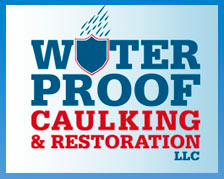 Commercial buildings are often exposed to intense forces over the course of their lives, including severe weather, heavy vibrations and even accidental damage caused by machinery or delivery trucks.
Commercial buildings are often exposed to intense forces over the course of their lives, including severe weather, heavy vibrations and even accidental damage caused by machinery or delivery trucks.
This means that, over time, the protective measures taken to secure a new building can start to wear down. Commercial caulking in PA is a critical but often overlooked area when planning for surface restorations.
If your commercial building needs caulk repair, waiting could cause more significant damage that is more costly and difficult to fix later. Here’s what you need to know about the signs that indicate your PA commercial building has caulking damage and what you can do about it to fix the issue with minimal interruption.
What Caulking Does for Your Building
Caulk is a flexible material that is inserted into gaps to close them in construction. Some types of caulk are made of silicone, but a wide variety are available, depending on the application.
No building can be made of materials that are completely and impermeable flush with each other, which means that gaps will always be present around windows and doors, between expansion joints and surrounding installations, such as pipes that exit the façade of the building. Caulking seals these joints so that the inner material is not exposed to external forces.
The primary concern is moisture. If water is allowed to penetrate your commercial building through small, unsealed cracks and gaps, it can cause significant damage. Your masonry foundation may begin to crack and weaken, leading to a total collapse. The wooden structure inside the building could begin to rot, creating hazardous areas.
Dangerous black mold could grow behind walls, its spores circulating through the HVAC system without anyone’s knowledge. Caulking is meant to prevent these issues. It also stops pests from entering through small gaps and keeps your utility bills more reasonable by stopping drafts.
Signs Commercial Caulking in PA Is Damaged
Your commercial caulking is a vital part of your building, and making sure that it is still in good repair should be included on the company’s list of standard maintenance practices. An expert should analyze the building at least once per year for indications of water damage, which can point to caulking that has gotten old and is beginning to fail.
Additionally, a visual inspection of the caulk itself is often a sufficient indicator of its condition. Old caulk in need of replacement will no longer appear even, and it might look like it is flaking, peeling or coming unstuck from its joints. Caulk that is dry and cracking is on its way to failure and should be replaced as well.
This job is best left to the professionals, who can correctly remove old caulk without damaging the building’s surfaces and then install new caulk with a proper seal. Never attempt to caulk over existing caulk. This will prevent an adequate seal and can make problems worse by trapping moisture instead of preventing it.
When to Schedule Caulking for Commercial Buildings
Caulking is not a job that should cause very much disruption for most commercial operations, but some care should be taken when scheduling it. Experts will explain that caulking is best done when the temperature is consistently above 45 degrees Fahrenheit. Below this, the caulk can freeze or harden without properly adhering to the surface below. This makes spring an ideal time for recaulking projects.
However, caulk must cure in dry conditions. The unpredictable threat of rain can delay a caulking project, which is why most of these jobs happen during the early summer. A trustworthy expert will adapt to the forecast to be sure that the job is done correctly without compromising the cure time and conditions for the caulk.
Overall, checking on a building’s caulk is a task that should be done once or twice a year. At least one of these times should be during winter. This way, any issues can be identified in time for late spring and early summer, which are ideal times to fix a commercial building’s caulk.
If you notice a problem at another time, windows of opportunity may be present throughout the year to fix it. Additionally, professionals can sometimes create an ideal contained environment localized to the area they are fixing if the repair is urgent and weather does not permit.
Trust the Experts to Do the Job Right the First Time
If your commercial caulking in PA is damaged, or if you aren’t sure and want the opinion of an expert, be sure to rely on professionals that you trust. The team at Waterproof Caulking & Restoration specializes in building repairs like recaulking.
We can help you identify areas where caulk is compromised and develop a timeline for repairs that fits into your schedule and allows the caulk to cure properly. Contact us to learn more about our services or to schedule an appointment.
